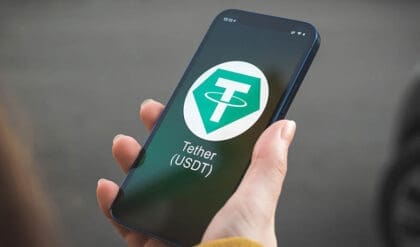A Comprehensive Guide to Understanding the World’s First Cryptocurrency
Cryptocurrencies have been making headlines in recent years, and one name that seems to be at the forefront is Bitcoin. But what exactly is Bitcoin? This comprehensive guide will explore the world’s first cryptocurrency, its history, how it works, and its impact on the global financial system.
Introduction to Bitcoin
Bitcoin is a digital currency that operates on a decentralized system, meaning that it is not controlled by any government or financial institution. It was created in 2009 by an unknown individual or group using the pseudonym Satoshi Nakamoto. Unlike traditional currencies, Bitcoin does not have physical coins or bills. It exists solely as digital code that can be sent and received using a computer or smartphone.
History of Bitcoin
The history of Bitcoin can be traced back to 2008 when Satoshi Nakamoto published a white paper titled “Bitcoin: A Peer-to-Peer Electronic Cash System.” The white paper proposed a new decentralized digital currency that would eliminate the need for intermediaries such as banks and financial institutions in online transactions. In 2009, the first Bitcoin software was released, and the first block of transactions was mined, known as the “genesis block.”
Bitcoin gained popularity quickly; by 2011, its value had risen to $1. In 2013, it reached an all-time high of nearly $20,000 before crashing down to around $3,000. Since then, its value has been highly volatile but has remained one of the most popular cryptocurrencies in the world.
How Bitcoin Works
Bitcoin operates on a blockchain, a decentralized digital ledger that records all transactions made using the cryptocurrency. When a transaction is made, it is broadcast to all nodes on the network, which then verify the transaction and add it to the blockchain. This process is known as mining, which we will discuss later.
Each Bitcoin transaction is made up of inputs and outputs. Inputs are the Bitcoins being sent, while outputs are the recipient’s Bitcoin address. The difference between inputs and outputs is the transaction fee, which is paid to the miner who verifies the transaction.
Bitcoin Mining
Bitcoin mining is the process of verifying and adding transactions to the blockchain. Miners use powerful computers to solve complex mathematical equations. The first miner to solve the equation receives a reward in the form of new Bitcoins. This process also adds new Bitcoins to the network, which is how the supply of Bitcoin increases over time. However, Bitcoin mining is not an easy process. It requires significant computing power, meaning miners must invest in expensive hardware to succeed. Additionally, the amount of Bitcoin that can be mined is limited, making it more difficult over time.
Advantages of Bitcoin
One of the primary advantages of Bitcoin is that it is decentralized, meaning that it is not controlled by any government or financial institution. This makes it more secure and resistant to fraud than traditional currencies. Additionally, Bitcoin transactions are faster and cheaper than conventional bank transfers, making it a more convenient option for international transactions.
Bitcoin is also attractive to investors because it has the potential for significant price appreciation. Its limited supply and high demand have led to its volatile price movements, which can lead to significant gains or losses for investors.
Disadvantages of Bitcoin
Despite its many advantages, Bitcoin also has its share of drawbacks. One of the biggest concerns is the lack of regulation, which can make it a target for illegal activities such as money laundering and terrorist financing. Additionally, Bitcoin transactions are irreversible, meaning that if you send Bitcoin to the wrong address, it cannot be recovered.
Bitcoin is also vulnerable to cyberattacks. Hackers who gain access to your Bitcoin wallet can steal your digital assets. Finally, Bitcoin’s value is highly volatile, so it can be challenging to use as a stable store of value.
Bitcoin vs. Traditional Currencies
Bitcoin differs from traditional currencies in several key ways. First, it is decentralized and operates on a peer-to-peer network, while traditional currencies are controlled by central banks and financial institutions. Additionally, Bitcoin transactions are faster and cheaper than traditional bank transfers, making it a more convenient option for international transactions.
However, traditional currencies are more stable and widely accepted. At the same time, Bitcoin is still relatively unknown and can be difficult to spend in everyday transactions. Additionally, traditional currencies are backed by governments, while Bitcoin’s value is based solely on market demand.
Legal Status of Bitcoin
The legal status of Bitcoin varies depending on the country. In some countries, it is recognized as a legal form of payment, while in others, it is banned outright. In the United States, Bitcoin is considered a commodity subject to capital gains taxes.
However, as Bitcoin continues to gain popularity, governments worldwide are starting to take notice and implement regulations to protect consumers and prevent illegal activities. Is Bitcoin legal in your country?
Future of Bitcoin
The future of Bitcoin is uncertain, but many experts believe it will continue to gain popularity and increase in value over time. Some predict that it will eventually replace traditional currencies and become the primary form of payment for online transactions.
However, Bitcoin faces several challenges, including regulatory uncertainty and volatile price movements. As technology continues to evolve, it remains to be seen how Bitcoin will fit into the global financial system in the future.
How to Buy and Store Bitcoin
Buying and storing Bitcoin can be a complex process, but there are several steps you can take to make it easier. First, you must find a reputable cryptocurrency exchange where you can buy Bitcoin using traditional currency.
Once you have purchased Bitcoin, you must store it in a digital wallet. There are several types of wallets to choose from, including hot wallets, which are connected to the internet, and cold wallets, which are stored offline for added security.
What is Bitcoin Security
Bitcoin security is a critical concern for investors, as digital assets can be vulnerable to cyberattacks. To protect your Bitcoin, using a secure digital wallet and enabling two-factor authentication is essential. Additionally, you should never share your private key with anyone, as this is the key to your digital assets.
Risks and Precautions
Investing in Bitcoin comes with several risks, including market volatility and cyberattack potential. To minimize these risks, it is essential to do your research and only invest what you can afford to lose. It is also crucial to keep your Bitcoin secure and take appropriate precautions to protect your digital assets.
Common Myths about Bitcoin
There are several common myths about Bitcoin, including the belief that it is only used for illegal activities and is a Ponzi scheme. In reality, Bitcoin is a legitimate form of digital currency that can be used for various purposes, from online shopping to international money transfers.
Bitcoin and the Environment
Bitcoin mining requires significant computing power, which means that it consumes a lot of energy. As a result, Bitcoin has come under criticism for its environmental impact. However, it is worth noting that many Bitcoin miners now use renewable energy sources to power their operations. There are ongoing efforts to make Bitcoin mining more energy-efficient.
Conclusion
In conclusion, Bitcoin is a decentralized digital currency that operates on a peer-to-peer network. It offers several advantages, including fast and cheap transactions, low fees, and anonymity. However, it also has its share of disadvantages, including its volatility, lack of regulation, and vulnerability to cyberattacks.
As with any investment, there are risks involved in buying and storing Bitcoin. It is important to research and take appropriate precautions to protect your digital assets. Ultimately, the future of Bitcoin is uncertain. Still, many experts believe that it will continue to gain popularity and become more widely accepted in the future.
FAQs
- Is Bitcoin legal? Yes, the legal status of Bitcoin varies depending on the country. Still, in many countries, it is recognized as a legal payment.
- Can I buy fractions of Bitcoin? Yes, Bitcoin can be divided into smaller units, with the smallest unit being one hundred millionth of a Bitcoin (0.00000001 BTC).
- Is Bitcoin easy to buy? You can buy Bitcoin on a cryptocurrency exchange using traditional currency.
- How do I store my Bitcoin securely? You should store your Bitcoin in a secure digital wallet and enable two-factor authentication.
- Is Bitcoin a good investment? As with any investment, there are risks involved in buying and storing Bitcoin. Doing your research and only invest what you can afford to lose is important.






